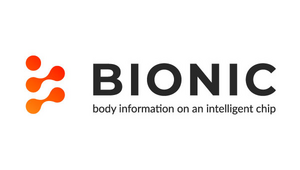Improper strain on the musculoskeletal system, repetitive movements or an ergonomically uncomfortable posture lead to complaints from many employees. In particular, older employees often suffer from disorders of the musculoskeletal system or other age-related limitations due to their long-term activities. In the BIONIC project funded by the European Union (EU), the DFKI works as coordinator together with ten international partners on intelligent solutions to reduce such health problems.
Body Sensor Network (BSN) analyzes loads and corrects malpositions in real time
A network of different sensors worn on the body is used to develop a system that records the state of health of workers during the course of the day. The analysis takes place on an intelligent chip on the body; pre-processing the raw data directly at the "source" enables local data analysis in real time. Novel methods of risk analysis allow direct feedback on stresses and malpositions. Playful applications and a training app motivate the user to counteract one-sided stress and provide personalized and medical support for training at home.
Further development of applications from the predecessor project “EASY-IMP”
A large number of the partners have already successfully worked on the development of a BSN in the EU project EASY-IMP, which used small IMU sensors (acceleration or rotation rate sensors) attached to clothing or skin for the analysis of body movements. The lightweight and modular design of the system will be further developed in BIONIC to facilitate integration.
Biomechanical Models and Deep Learning for Ergonomic Risk Assessment
By using biomechanical models for age-related and chronic impairments, we design algorithms for ergonomic risk assessment of physical stress. The input parameters include posture, forces and ?moments?, as well as physiological parameters such as heart rate or body temperature.
Procedures based on objective and subjective data (expert criteria) are used as a basis and supplemented by personalised algorithms for which deep learning methods are used. The data generated is stored in accordance with the EU Data Protection Directive.
“BIONIC - Personalized Body Sensor Networks with Built-In Intelligence for Real-Time Risk Assessment and Coaching of Ageing workers, in all types of working and living environments” is an interdisciplinary research project with eleven partners from medicine, biotechnology, electronics, information technology and artificial intelligence to construction and factory workers who will validate the results in pilot trials.
Partners
- Deutsches Forschungszentrum für Künstliche Intelligenz GmbH DFKI (Projektkoordination)
- Technische Universität Kaiserslautern – wearHEALTH Group
- Instituto de Biomechanica de Valencia, Spanien
- Roessingh Research and Development, University of Twente, Niederlande
- University of Piraeus – Systems Security Lab, Griechenland
- Interactive Wear GmbH, München
- Hypercliq IKE, Griechenland
- ACCIONA Construcción S.A. – Spanien
- Rolls-Royce Power Systems AG – Friedrichshafen
- Bundesanstalt für Arbeitsschutz und Arbeitsmedizin (BAuA), Dortmund
- Fundación Laboral de la Construcción – Spanien


 Prof. Dr. Didier Stricker
Prof. Dr. Didier Stricker
